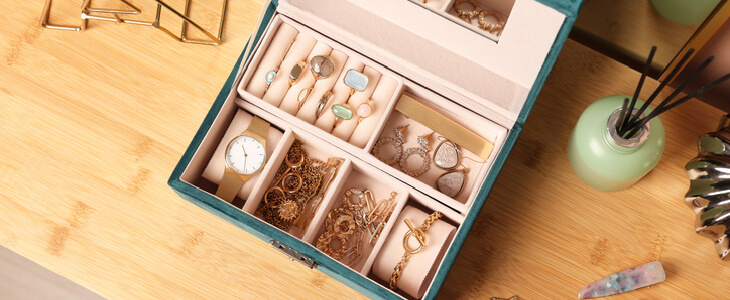Jewelry can have economic and significant sentimental value. It might represent an important event in your life. You might even have family heirlooms passed down through the generations before you received them.
To answer the question, jewelry might be divided in a divorce. Courts use the same rules for dealing with all types of personal property, including jewelry, in a divorce.
New York uses equitable distribution rules for dividing marital property. Thus, a divorce judge will look at the source and timing of the jewelry’s acquisition to determine whether it belongs to one spouse or the spouses must divide it.
Property Distribution Rules
Divorce is primarily a legal process. A divorce ends the marriage so that each ex-spouse can return to the legal status of single and unmarried. Before terminating it, a court must wind up the marriage’s economic affairs and divide the couple’s property.
New York uses equitable distribution rules when dividing the marital estate. Under these rules, a judge divides the property fairly rather than equally. While this system provides less certainty, it also gives more flexibility for the spouses to argue to keep certain property items.
If you have a prenuptial agreement, the court will usually follow its terms. If not, the court will abide by the following rules:
- The couple must usually divide property acquired during the marriage
- The acquiring spouse usually retains property acquired before the marriage
However, both these rules have exceptions. These exceptions allow courts to treat property acquired during the marriage as separate property belonging to only one spouse. They also allow courts to treat property predating the marriage as marital property that must be divided.
Separate Property Rules
Jewelry acquired during the marriage might be considered “marital property” or “separate property,” depending on its source. Separate property includes gifts received during the marriage from the other spouse or a third party. Thus, separate property includes a spouse’s retirement watch, whether they received it from their employer, a co-worker, or their soon-to-be ex-spouse.
Separate property also includes inheritances received during marriage. If you inherited your great-grandmother’s wedding ring while you were still married, the court will usually not order you to divide this jewelry in a divorce.
Finally, anything acquired using separate property is usually separate. Thus, if you inherited $10,000 from your great-grandmother and used $2,000 of your inheritance to buy a ring, a court will consider the ring separate property.
The court will not divide any jewelry that falls within the definition of “separate property.” Instead, the court will award it to the spouse who originally acquired it.
Marital Property Rules
Marital property includes anything acquired during the marriage using marital assets. Any income earned after the wedding belongs to the couple rather than the individual who earned it. As a result, any jewelry purchased with that money should also belong to the couple rather than the individual who bought it.
However, the marital property rules that apply to other assets are not applied as strictly to jewelry. Often, the jewelry is retained by the party who owned or possessed the jewelry and it is very rare for any monetary value to be assigned or allocated to the jewelry.
Contact Us to Learn More
Fighting for a fair property division can ensure your future after a divorce. Contact Aiello & DiFalco, a family law firm in Garden City, New York, for a free consultation to discuss how we will fight for your jewelry in a divorce.


